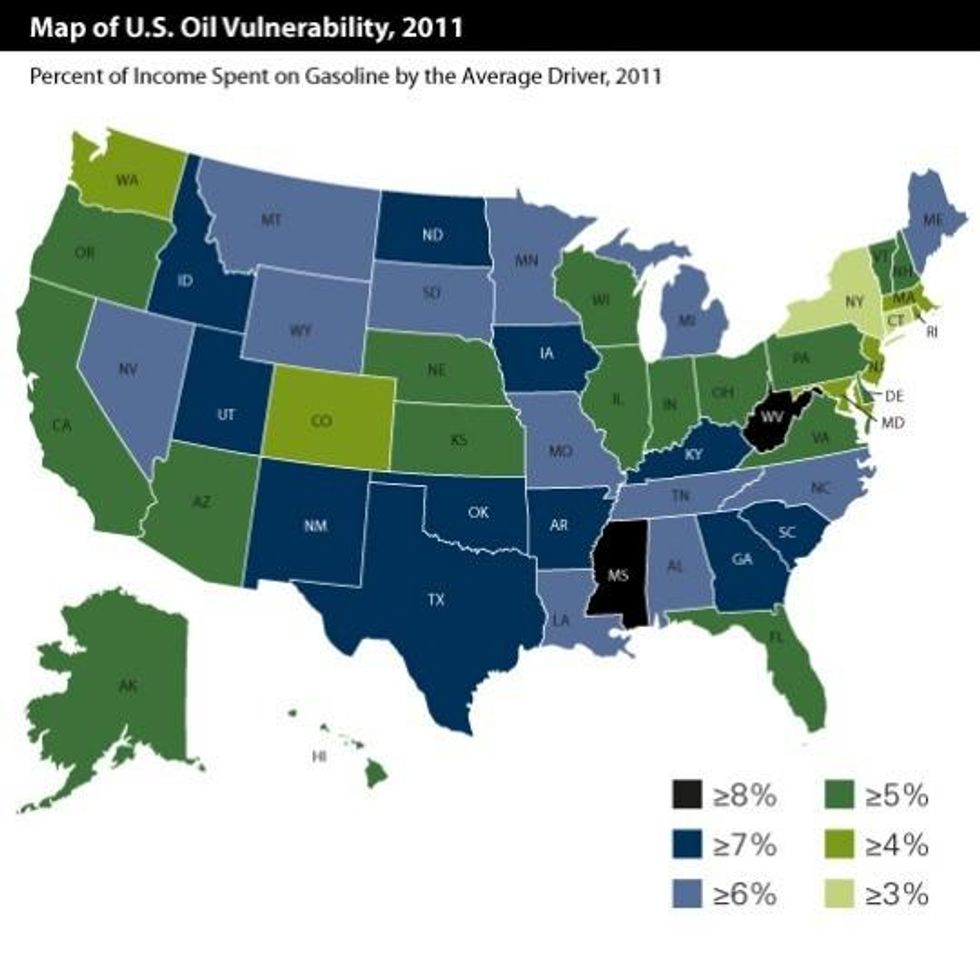There is much work to be done, state by state, in order to wean American off of its fossil fuel addiction; however, there is a noticeable difference in fossil fuel dependence between states that actively produce clean energy initiatives versus states who don't,
according to a new report by Natural Resources Defense Council.
Fighting Oil Addiction: Ranking States' Gasoline Price Vulnerability and Solutions for Change shows a "wide gulf" between states that promote public transit (bus, shuttles, trains or light rail), smart growth, and fuel efficiency, compared to states that do "little or nothing to expand less oil dependent forms of transportation."
The report shows that the 10 states that do the most to implement policies that reduce fossil fuel usage are: #1 California, #2 Oregon, #3 Washington, #4 Massachusetts, #5 New York, #6 Connecticut, #7 Maine, #8 Maryland, #9 Rhode Island and #10 Vermont.
The 10 states that do the least to curb oil dependence are: #50 Nebraska, #49 Alaska, #48 Mississippi, #47 Idaho, #46 North Dakota, #45 Arkansas, #44 Indiana, #43 South Dakota, #42 Wyoming, #41 Kansas and #40 Utah -- typically Republican controlled states.
Drivers in more rural states, where public transportation and other clean energy initiatives are typically harder to come by, are twice as dependent on fossil fuels and thus pay twice as much as a percentage of their incomes for gas, compared to drivers in other more urban states.
"The truth is, we must continue fighting to reduce our dependence on oil," said Deron Lovaas, NRDC's federal transportation policy director. "Whether it's by states advancing public transit, clean fuels and smart growth, or by the government supporting development of advanced vehicles and actions that save oil, more steps must be taken to end an addiction that harms our wallets, economy and environment."
Further, the oil addiction report calls on the Obama administration to do more to influence state initiatives:
"The federal government should lower barriers to new adopters of advanced vehicles and alternative fuels, and implement a two-year transportation bill Congress passed last summer in ways that save oil."



